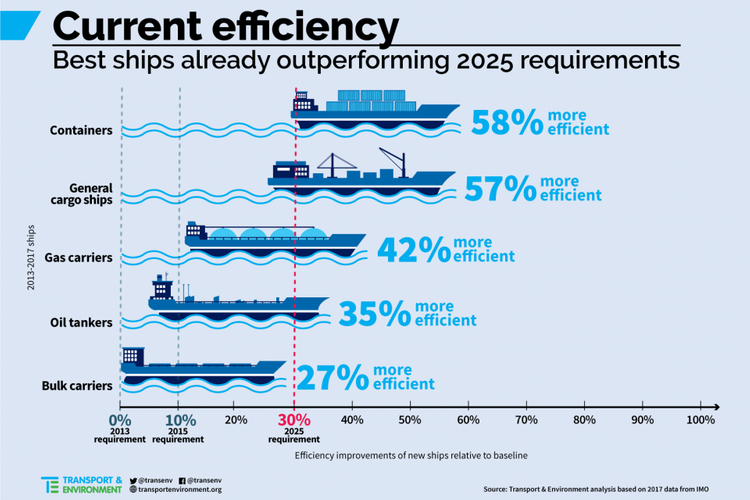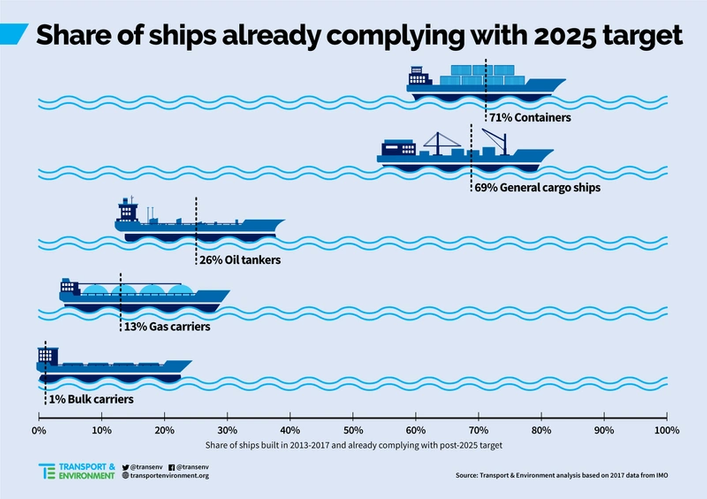A new study has revealed that nearly three-quarters (71 percent) of all new containerships, which emit around a quarter of global ship CO2 emissions, are already in compliance with the post-2025 requirements of the International Maritime Organization’s (IMO) Energy Efficiency Design Index (EEDI).
The study, based on analysis of the IMO’s own data and conducted by Transport & Environment (T&E), a founding member of the Clean Shipping Coalition (CSC), also found that the best 10 percent of new containerships are already almost twice as efficient as the requirement for 10 years time.
Faig Abbasov, shipping officer at T&E, said, “This new analysis using official IMO data confirms earlier findings presented to the IMO by environmental groups: the energy efficiency standard is not fit for purpose to drive better designs or technological innovation. Ship owners, represented by the International Chamber of Shipping and BIMCO, have opposed tighter standards as part of efforts to drain all ambition out of IMO discussions on how shipping can decarbonizes. Strengthening the EEDI is the lowest of low hanging fruit. If the IMO can’t take timely action on this issue because of industry opposition, how can it be expected to deliver an adequate response to the Paris Agreement?”
The study analyzed ship types accounting for two-thirds of ship CO2 emissions and found that in addition to containerships, 69 percent of general cargo ships, 26 percent of new tankers and 13 percent of gas carriers exceed the EEDI’s 2025 requirements 10 years ahead of schedule. In general, the 10 percent best performing general cargo ships, tankers and gas carriers are respectively 57 percent, 35 percent and 42 percent more efficient than was required by the EEDI in the period 2013-2015. CSC believes that the performance of the best ships in the fleet would be a good place to start when revising existing or setting new EEDI requirements.
John Maggs, president of the CSC, said, “The EEDI’s current efficiency requirements are so weak that there is no incentive for the uptake of currently available innovative technologies, let alone the development of new technologies. Industry says it can only reduce its climate impact when low carbon technologies are available, but resists policies that will incentivize their development and deployment. You can’t have your cake and eat it. Something has to give.”
















